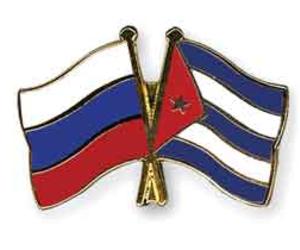Russia cancels $30bn Cuba debt: breakthrough in bilateral relations
- Submitted by: lena campos
- Business and Economy
- 02 / 26 / 2013

After the breakup of the USSR Moscow had to drop its financial support of Cuba and both countries have been trying to forge new ties in a post-Cold War world. With Russia as the Soviet Union’s legal successor Cuba was left with massive Soviet-granted loans, this had cast a shadow over Russia-Cuba ties.
But following the visit to Cuba by the Prime Minister Dmitry Medvedev the island has now received its biggest ever debt cancellation.
Boris Martynov is Deputy Director of the Moscow-based Institute of Latin American Studies. He said the amount Cuba owed had impacted on Moscow-Havana relations.
Boris Martynov: I think that this can be considered as a breakthrough in our bilateral relations, meaning that we didn’t get that breakthrough after the visit of Putin in 2000 because the problem of the Soviet debt has always been one of the or maybe the most difficult in our relations.
Brendan Cole: The Russian Industry and Trade Minister Denis Manturov said part of the $30 billion debt would be written off and part would be restructured, although he would not specify which part.
Moscow's decision to cancel Cuba’s debt comes in the wake of similar agreements with Afghanistan, North Korea, Iraq, Syria and Libya. Russia has written off a total of $138 billion in debts owed by former clients and allies.
Boris Martynov of the Moscow-based Institute of Latin American Studies said the aim of the cancellations was to look to the future and benefit from infrastructure and ties that had been forged during Soviet times.
Boris Martynov: Every case has its proper specifics because when we deal with Cuba, we have a government which is also interested in cooperation with Cuba, which is a responsible government after all, a government with which we hope to get our proper interests. And there governments whose debts were written off out of purely political and ideological point of view, and governments which could not really correspond to the economic interests of Russia. So, there are different cases after all.
Brendan Cole: The debt cancellation is part of a deal under which Cuba may lease Russian civilian aircraft with $650 million. The planes will be used by Cuban carrier Cubana whose fleet almost fully consists of Russian-made airliners.
Also, Russian naval ships will refill in Cuban ports, however there will be no military presence on the island, such as that of the USSR during the Cold War years.
Boris Martynov:Cuban aircraft system has always been provided with the Soviet aircraft. And it is no wonder that they want to continue on the new basis and on the new mutually beneficial level as we try to construct our future relations with Cuba.
Brendan Cole:Tim Jones is the policy officer for the Jubilee Debt Campaign which campaigns for debt cancellation around the world. He said it was important that the writing off of debts did come with too many strings attached.
Tim Jones:I actually think that debt doesn’t need to be cancelled when it is too big or when it is unjust, that it comes from loans that people have no say over but they have been actively damaging to them. Unfortunately the history of debt cancellation is that creditors use it as a way to impose policies on countries.
Brendan Cole:Meanwhile the Cuban leader Raul Castro has announced he will only serve one more term as President. Castro is aged 82 and he was reelected President on Sunday at the first session of the country’s new Parliament. But he’s appointed the rising star Miguel Diaz-Canel, a 52 year old, as a Top Lieutenant and first in the line of succession.
Source: English.ruvr.ru
Comments